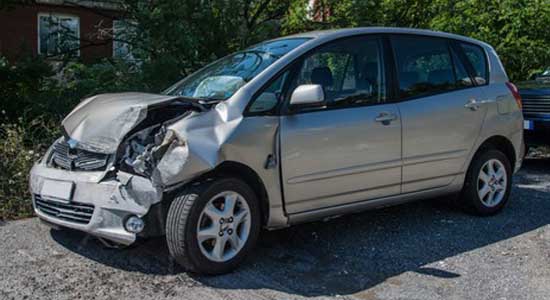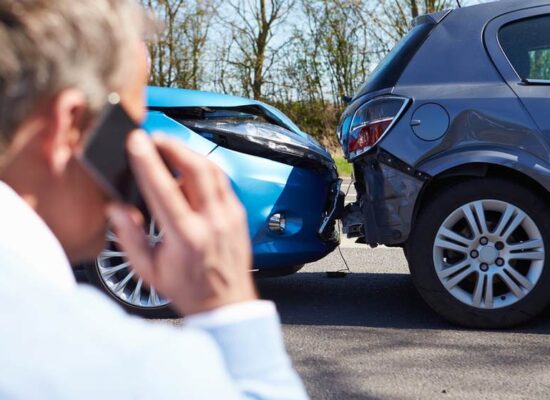Sell My Cat S Or Cat N Car
For the past 10 years, the classification of insurance write-offs has been your stable four categories of A, B, C and D, with A being irreparable and unable to return to the road and categorized D cars being given a lifeline. But as of 1 October 2017, this was about to change with the idea of making things ‘more clear’ for the motorist. A and B remained – but categories C and D were scrapped off in favour of the new S and N structure. Understanding the new classification is vitally important for any motorist involved in an accident or potentially buying a second hand vehicle, as a vehicle’s category marker stays with it for the remainder of its days on the roads.

Cat S Meaning
If a car that has been damaged in a crash, flood or a fire is too expensive to repair – being expected to cost more to repair than it is worth at the time – it may be written off by the insurer. A Category S (or Cat S) car is one that has suffered structural damage, but it is still repairable. The old category of C – and now reclassified as S – is used where all related costs to the structurally damaged vehicle exceed its value, which takes into consideration things like hire car rental which can be £100 a day for example. To many insurance companies, the repair bill escalates higher than the value of the vehicle deeming it a write-off. But although the vehicle is now structurally damaged it is repairable and can be returned to the roads. If it is repaired, the car’s salvage category remains with the vehicle for life, which reduces its appeal for many drivers and makes it worth less.
Cat N Meaning
When October 2017 came around, the Association of British Insurers (ABI) decided to alter these insurance categories and their definitions.
Cat S and Cat N replaced Cat C and Cat D respectively – and their definitions changed a bit too. Category N write-offs are vehicles that have suffered non-structural damage and can be repaired to a roadworthy condition and put back into use. The term ‘non-structural’ covers a lot of ground these days and could include the bumpers and roof panel, not to mention the electrics, the engine and the seats. A CAT N car doesn’t need to pass an inspection or be re-registered before it is returned to the road. As far as the law is concerned, there’s no problem with repairing a Cat N write off and putting it back on the road.

Sell Your Written-Off Car
If deciding against insuring your vehicle, you may want to look at selling your written-off car for cash. Scrap My Car Services are a UK wide network that not only purchases scrap cars but buy Cat S or Cat N insurance write-offs too as salvageable vehicles. The new changes from category C and D to S and N won’t make the roads any safer – they will simply give a clearer understanding of how the structure works and the system works to the public. At the end of the day, if a vehicle was declared a write-off, those rated Category C and D in the past had to pass a Vehicle Identity Check (VIC) so that it could be returned to the roads. But this was abolished in 2015 due to the costs associated with it leaving potential buyers at risk of buying a badly-repaired vehicle. The new classifications of S and N just give a clearer understanding of those categories – but they won’t give you any clear assessment of how well or badly a repair has been undertaken and put back on the roads.
DVLA Paperwork Sorted
It’s important to get the DVLA paperwork right when you sell your scrap car, whether your car is ready to recycle, or still has some miles left in it. Choosing Scrap My Car Service will ensure that everything is done correctly. You’ll want to make sure that you’re doing things correctly to avoid an automatic fine from DVLA and free you from any responsibility for your old car.
When it comes to selling your scrap car online, Scrap My Car Service will help you to get the DVLA paperwork right by ensuring that your registration certificate (V5C – the log book) is correctly filled out, to free you from any further responsibility for the car. It’s important to do this by the book when you sell your scrap car for cash so that you avoid a fine.
Frequently Asked Questions
The price you receive for your vehicle will be dependant on a variety of factors, for example; whether your car has been purchased as a salvageable vehicle or as an end-of-life vehicle for scrap. To find out the value of a scrap car, simply fill out the scrap car quote form at the bottom of this page and get your price, instantly!
As mentioned above, it is dependent upon our intentions of us for your scrap car. If your car is purchased for salvage purposes the vehicle’s worth will be valued based upon overall mileage, interior condition, exterior condition, the condition of the engine and whether the vehicle has any additional extras such as alloys.
All payments are made on the day of collection. Once the collector has inspected your vehicle to ensure that the condition of your scrap car matches the details given to us during the quotation stage, you should call us to confirm the details and once this has been done, payment will be made.
Yes. Cash payments are illegal due to the Scrap Metal Dealers Act 2013 and so all payments are made via bank transfer or business cheque, which must be paid into a UK bank account.
No, our service is 100% free for users of our site. There are no hidden costs or fees and all collections are free; so the quote you accept, is the price you will be paid!
